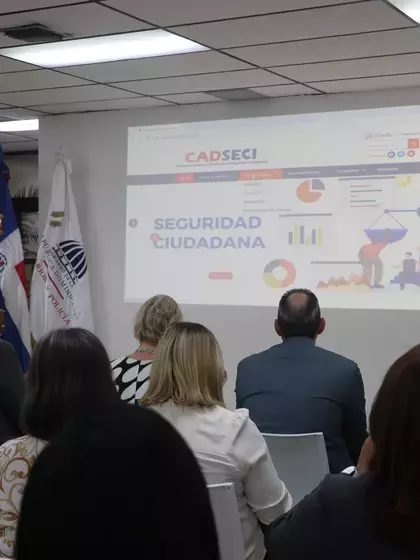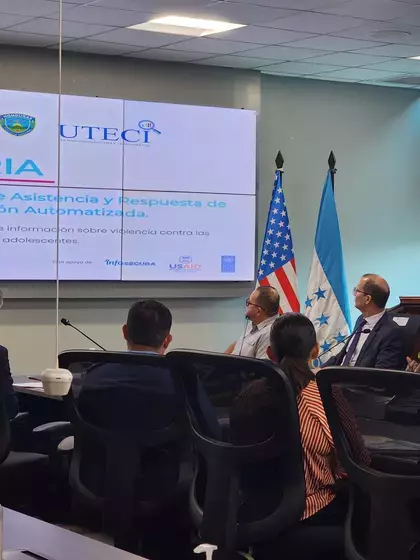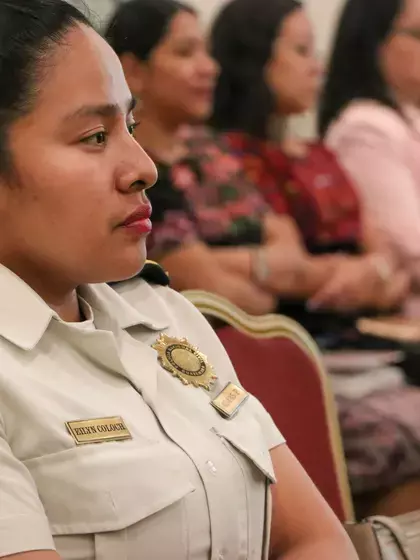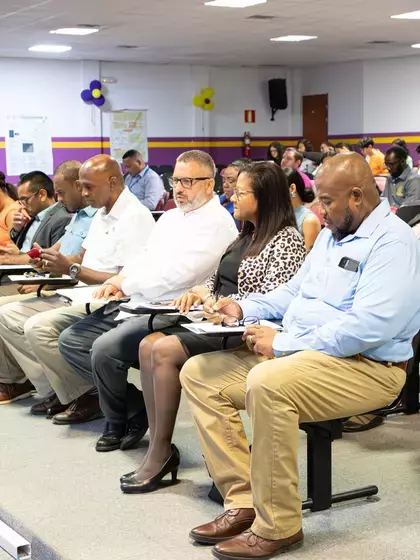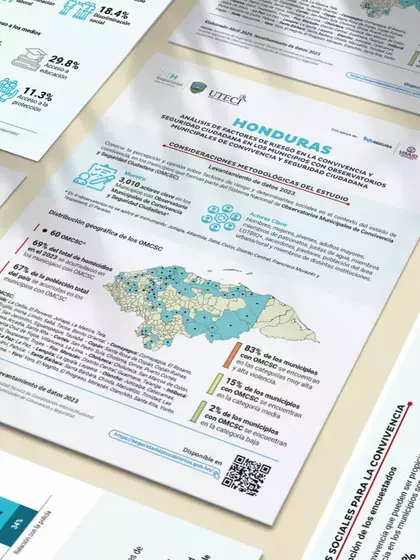Editorial: InfoSegura has left over one hundred evidence-based citizen security policies in the region

The United Nations Development Programme, in partnership with USAID, completes 10 years of partnership through the InfoSegura Regional Project. Ten years of non-stop work in six countries in coordination with over 90 State institutions and 60 civil society organizations to design and implement evidence-based, gender-informed and people-centred policies for citizen security.
Just a decade ago, one of the main weaknesses affecting countries in Central America and the Dominican Republic was the absence of an evidence- and data-driven culture when designing and deploying public policy on citizen security. Other shortcomings included that information was dispersed among different sources, there was no information-sharing due to the lack of trust among institutions, data was counted and classified manually, limited human capabilities in data collection and classification, and there was no desire to make information on citizen security available to the public.
The impact that these frailties and deficiencies had an on the quality of data and indicators on violence and crime translated into analysis that obscured rather than clarified the situation. These obstacles made it more difficult to make on point policy decisions in a timely manner.
InfoSegura has shed light on what had been an opaque tunnel of information management and analysis in five countries in six Central America: Belize, Costa Rica, El Salvador, Guatemala, Honduras and the Dominican Republic.
Nowadays, the countries where the Project operated have more resources, capacities, and knowledge to improve security and prevent violence. The subregion now has tools and mechanisms that reinforce institutional technical and technological capacities and enhance their ability to provide evidence of progress towards SDG 16 and SDG 5. Data quality and information analysis have improved. The technological transformation that led to innovation and the use of digital tools has promoted institutional transparency and accountability to citizens.
" Infosegura contributed to designing and implementing
120 national and local policies, plans and strategies
for citizen security and preventing violence against
women and girls, respectful of the rule of law and,
above all, centered on people".
An analysis of objective data, using homicide rates as a point of reference, shows that–over the last decade–homicide has dropped from a rate of 37.3 violent deaths per 100,000 population in 2014 to 17.3 in 2023; a 49.6 per cent reduction. For its part, the femicide rate declined 31.5 per cent between 2014 and 2022.
Another indicator that reflects the improvements Central America and the Dominican Republic have experienced can be seen in the progress made toward SDG 16 Target 16.1 on Peace, justice and strong institutions that proposes to "significantly reduce all forms of violence and related death rates everywhere." Since 2015, three out of five countries in Latin America and the Caribbean that will meet the objective of a 50 per cent reduction in homicides by 2030 are in the subregion: El Salvador, Guatemala, and Honduras. Two more (Belize and the Dominican Republic) are among those whose rates will decrease 20 to 44 per cent, and only one (Costa Rica) is among those whose projections indicate increasing homicide rates.
Furthermore, data in the 2023 Latinobarometer shows population confidence in the police rose in several countries in the region, like Costa Rica, El Salvador, Guatemala and Honduras. There was also an improvement in public perception of insecurity. When answering: "How often are you concerned that you could become the victim of a violent crime?" in 2013,
45.8 per cent of survey respondents stated all or almost all the time; while in 2023, the percentage dropped to 25.4 per cent. Although the impact of insecurity and crime on citizen's lives is still significant, progress is evident in a region that just a few years ago was considered one of the most violent worldwide.
Having quality information about citizen security that is timely, reliable, and relevant, makes it possible to design and enforce much more effective and efficient policies to bring down the indices of violence and insecurity. This is borne out by international evidence and InfoSegura put this into practice. It is not enough to keep track of what is going on, it is necessary that we understand it based on evidence, to take action in a timely and accurate manner. The Project has maintained that it is indispensable to count to understand, comprehend to act and transform.
Actions the Project undertook have had direct consequences on increasing information usage in public policy, as shown by the fact that it contributed to designing and implementing 120 national and local policies, plans and strategies for citizen security, preventing violence against women and girls and specifically targeting children and youth, respectful of the rule of law and, above all, centered on people. These transformations have also had an impact on the lives of individuals. Since the Project started in 2014, 8,430 lives have been saved.
There is certainly a lot left to be done. Throughout the region, multiple forms of violence against women and girls persist and are experienced throughout the life cycle, as well as violence against vulnerable groups, against the LGTBQ+ collective, or against the migrant population. The context has changed over time. There are new expressions of violence and insecurity due to the trans-nationalization and diversification of organized crime. Correspondingly, this is the time for a new gaze, mindful of national problems, addressing citizen security on the basis of regional solutions. This is the path that InfoSegura has pursued in recent years, which we believe should continue to deepen, expanding the public sphere and strengthening the community of practice.
We take this opportunity to thank all the national, local government institutions and civil society organizations for trusting this UNDP and USAID partnership over the course of this ten-year project that is now coming to an end. We also thank the individuals, institutions and organizations that have believed in this initiative and contributed to it with their knowledge, counsel, and support for a decade.
We hope the InfoSegura legacy continues to help make people's lives better and to consolidate societies that are more peaceful, just, and cohesive.
Many thanks!

